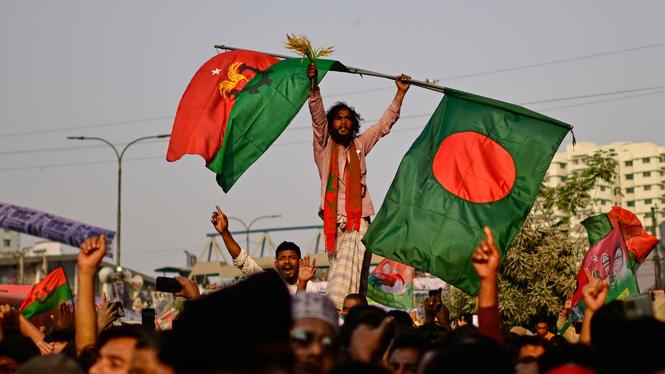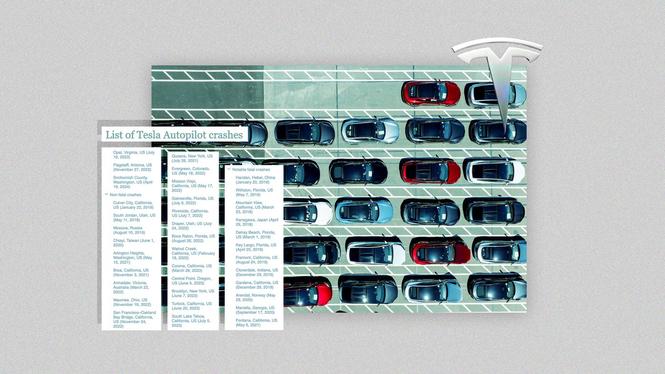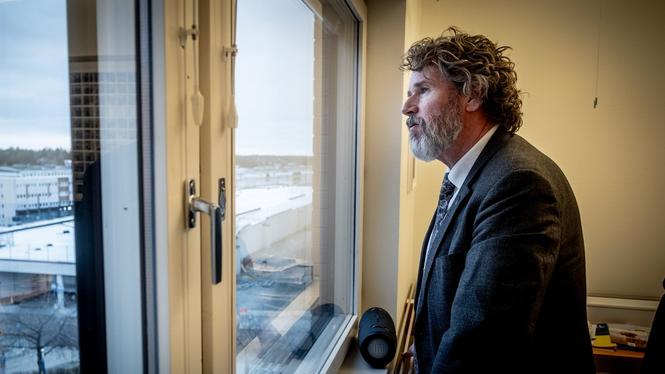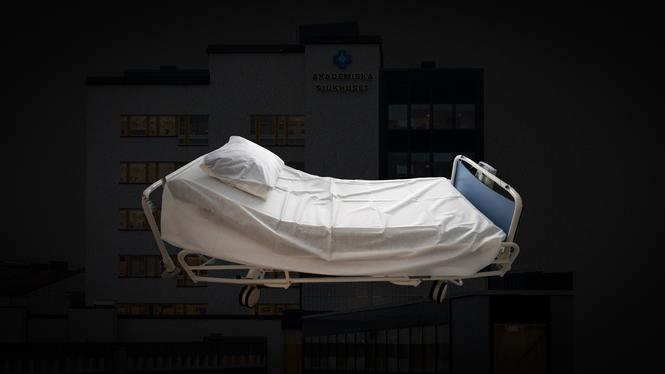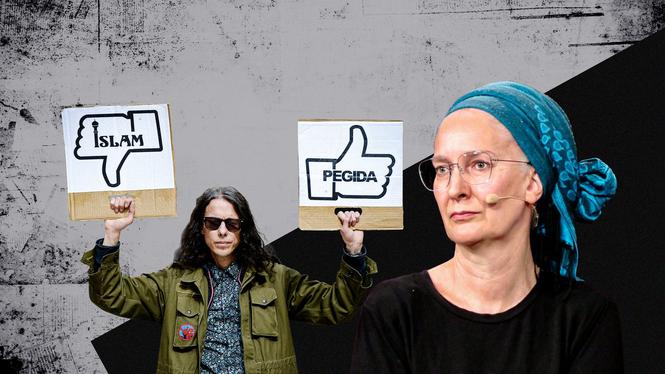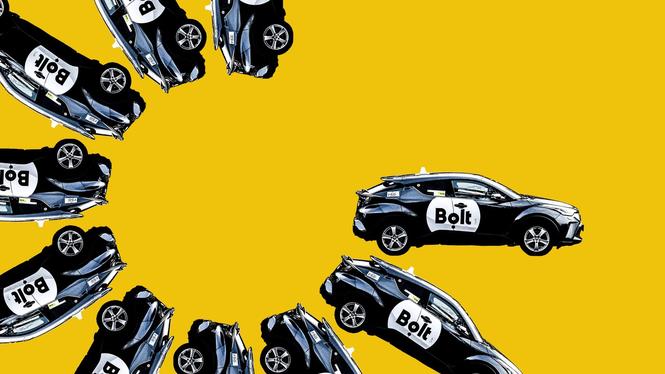Opinion
Ledare: I wake up not knowing if I still have a home

Dagens ETC
This is what war looks like. This is what it feels like. Ukrainian journalist Alyona Vyshnytska had to flee her beloved Kyiv. "Hell is everywhere", she writes.
Ledarsidan är oberoende med röd och grön politisk färg.
We’ve been living a nightmare for four days. I manage to sleep for an hour but the sound of sirens wakes me up - the threat from the air. I’m currently in Rivne, a city located 350 kilometers from Kyiv, not too far from Belarus. The day before yesterday, the Russians bombed our local airfield, and in the evening, gunfire was heard outside of the city. We take cover in the shelters at least ten times a day. Sometimes we don’t even make it to the shelters, we just sit in the corridor where there aren’t any windows. I don’t sleep much, but when I do, waking up is awful.
I don’t wake up in my own bed, nor in my city. During the hour I slept, a Russian division has fired at a family with three children in Kyiv. Both of the parents and one of the children were killed. The Russians have also occupied the town Novaya Kachovka in the Kherson district and began taking down Ukrainian flags. In Kharkiv they blew up gas pipelines and in Kyiv an explosion took place which shattered all of the windows in a 16-story building and destroyed seven cars.
In Kherson, my friend's parents woke up to the waving of foreign flags. Russian soldiers walked around the streets, firing their weapons into the air, shouting: "Be happy, Russia has arrived!"
Next to a village in the Sumy district where my grandparents live, there is shooting taking place and a preschool has been bombed. From their windows they see rows of Russian tanks. Over the phone, other relatives tell me that Russian military is looting grocery stores, which aren’t receiving any deliveries anyway. The shelves with vodka are emptied. I call my grandparents every few hours and am afraid they won’t answer the next time.
The war has only been going on for four days, but I’ve forgotten that anything else has existed. I remember the day before full-scale war broke out, it was a Wednesday. In Kyiv, the sun was shining for the first time after several weeks of overcast. I took a break from my inbox and walked around the botanical garden near my home. I bought a coffee and sat on a bench next to the budding magnolia. The sunlight made me squint. I called my grandmother and told her that I had planted cherry tomatoes on the window sill and that I was excited about the results of this experiment.
Later that evening, Ania and Olia, two friends from university, came to visit me and Maks. We drank homemade cherry liqueur and laughed like never before. Ania told us about how her cat had bit her nipple the previous night. They left before midnight because Ania wanted to get up in time to do yoga in the morning.
There was no yoga. At five a.m., Kyiv was under attack.
At six a.m., Maks received a phone call from a friend. He and his pregnant wife were going to Rivne and had three available seats in the car; for Maks, me and my mother. Rivne is a small town. It's Maks' hometown. I don’t remember if we thought about it for very long, but I do remember that my mother cried on the phone and said that she didn’t want to go. I said that we needed to stick together. The ones that were able to. In Rivne, Maks’ mother lived by herself. We packed underwear, a couple of books, tangerines, couscous, two jars of canned fish, toothbrushes and our passports. For some reason, instead of going through the medical supplies, I also brought a finger harp, a beautiful dress and a bottle of wine. Maks rinsed the glasses from the night before, saying that we’ll be back in a few days- it’s nice to come home to a clean apartment.
It took ten hours to drive to Rivne and every minute I thought I was doing the wrong thing. We passed Ukrainian military heading the other direction. I saw their faces - some of them still covered in teen acne. We went west, and I felt guilty about trying to get away from danger, guilty about my grandparents who live seven kilometers from the Russian border, guilty about the fact that I hadn’t gotten my license the year before. If I had a car I could have driven to my relatives and saved them from hell. But where would I take them, when hell is everywhere?
When you’re living a nightmare, you have to find ways to remain sane. I have many such ways. I think of the soldiers defending Snake Island. When asked to surrender, they replied, “Russian warship, go fuck yourself”. These people give me comfort, the ones who perform simple and practical tasks. A friend in Ternopil is helping families find housing, a friend in Kyiv is cooking for people staying in shelters. Another person is reporting on everything that is going on and filming how Russian artillery shells my cities. Hundreds of friends have enlisted in different towns and villages in order to defend them. Another friend is making protective masks. I tried to donate blood during several occasions in Rivne without success; there are too many volunteers for the staff to manage.
Every minute I receive updates. "Bombings in the Sumy area". "In a village near Chernihiv, residents have stopped Russian military from advancing". "A Ukrainian citizen killed himself in a car bomb to stop Russian tanks”. "Europe is trying to decide whether or not to suspend Russia from Swift". "Demonstrations in support of Ukraine have been held in dozens of European cities". "A humanitarian catastrophe is taking place along the Polish border”. "In Belarus, full mobilization may begin tomorrow”. Rivne, where we are now, is not far from Belarus.
I perform simple and practical tasks. Yesterday I sorted medicine brought by people from their homes for a volunteer center. I arranged syringes by order of size. I packed the medicine that the military and ambulances need. After that I went home and cried.
Ania and Olia, with whom we drank cherry liqueur in another lifetime, managed to catch a train from Kyiv and have arrived here in Rivne, together with three cats. For eight hours they could barely move or go to the toilet - hundreds, or thousands, of people had managed to board the train, together with children and pets.
They escaped from hell. Yesterday it was still Kyiv.
“You have to eat these pastries. They’re from a bakery in Kyiv. They might be the last ones", Ania said and brought forth a box of sweets from her backpack.
Then she added:
"Or maybe it’ll just be a little while before we have them again."
There’s ten of us now living in an apartment with three rooms, as well as two dogs and seven cats. I perform simple and practical work. Right now, I’m preparing food. I write these sentences as the soup simmers. When the soup is ready we’ll eat and then we’ll join other people and we’ll fight for our homes.
Hell is everywhere but my people are also everywhere.
And I know we will succeed.
When I go to bed in the evening I read the news and the first thing I do in the morning is to check if my house in Kyiv has been destroyed and if my relatives in Sumy are alive. So far, my house is still standing and my relatives are alive.
Alyona Vyshnytska, 27 years, is a journalist and communications director. She lives in Kyiv, but has now been forced to flee to Rivne. Translation: Corinne Platten



